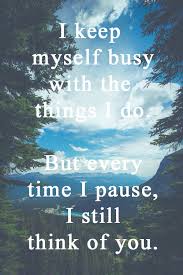by chandiniann | Oct 14, 2020 | Interesting Reads

There are many of us out there for whom death has played the mean separator from the spouse! Well, I am not going to tell you how to grieve for this irreplaceable loss since there is really not ‘A’ particular way to grieve for this particular loss. Yes, I do know however, that this permanent loss brings very definitive barriers, challenges, and even secondary losses. Your life suddenly has several questions – some ugly ones – raising their heads and staring you in the face. There are not even a few days to process what has just hit you, because you need to take care of ‘life’ and work.
When a spouse dies – your world changes in more ways than you ever thought possible. You feel extreme grief, shock, acute fear, and numbness – all at once. There is both physical and emotional pain and trauma – you find yourself crying a lot from both. You feel anger – anger at him / her leaving you, whilst feeling guilty about the anger and regret that you could not keep them alive. These are all feelings – myriad and normal – so there is no right or wrong when it comes to grieving and mourning.
These feelings are burdened further by the anxiety of ‘getting life together’, earning a livelihood, and caring for the children such that they cope better. This is hard work – herculean. This is when most people can either break or emerge – the ones who emerge quickly wear a mask of ‘I am fine’ and a smile (even though their heart might be bleeding and smiling feeling like torture). You feel dead on the inside. Of course, life continues to hit you – the economic hardships become a reality. This is true for both sexes – the other ‘wheel’ is broken, so it’s a lot harder to pull the ‘cart’ – the home. The nucleus of support is gone.
Time passes – you continue to miss your spouse and that ‘sharp’ pain never does quite go away. You will still have bad days amidst days where you seem to feel better. There is an inexplicable guilt that sweeps over when you might laugh, or eat a tasty meal, or even dress up for an important meeting. These are all common with which only those who have lost a spouse would identify.
Then there are the romantic dilemmas. Should one move on and find another partner / lover? Will it be acceptable to continue to be in love with the deceased spouse while feeling love for another? Would the new person adjust to this ‘double love’? Would you be able to adjust with another person? Romantic love is an essential aspect of one’s life – life does seem worthless and without meaning, since romantic love is a strong expression. With the ‘sunshine’ of your life snatched away, it is natural to feel that there is only death, misery, and decay all around.
The death of a spouse is a new situation – it is the end of several aspects, and this is true irrespective of whether the relationship had been extremely happy, or average, or even bad. The ending of such a close personal relationship changes a person, changes the circumstances – it’s akin to starting from scratch.
So if you have gone through this in the past or recently, know that those who have also been torn apart from their beloved, understand how you feel. For those of you who have not experienced this, feel blessed and also be kind and understanding. The feelings of pain and trauma NEVER REALLY GO AWAY!
by chandiniann | Oct 12, 2020 | Interesting Reads

“You can make more friends in two months by becoming interested in other people than you can in two years by trying to get other people interested in you.” – Dale Carnegie
Have you ever been that person or been with a person, who kind of just asks “How are you”, without any real intention of actually wanting to know more?
Would you change your mindset if you knew that words actually should mean something and choosing better words could change the way people comprehend you and form opinions about you?
“How are you” is way better than the unbearable “what’s up” or “How you doing” – how am I doing what? I mean seriously – if you were really interested and wanted to know the truth about another, you would make the time for it. Social convention might demand that we ask these questions, but the truth is that certain phrases say and mean very different things and in fact they reflect avoidance of actual interest.
The world today is rife with problems of myriad types. Insecurity, the unhealthy yet fervent desire to prove others wrong, a genuine lack of interest in others, and narrow selfishness – seem pervasive. When was the last time we asked someone “how are you” and really meant it – as in actually wanting them to tell us what is actually wrong? Most often the question ‘how are you’ is aimed at making people feel better about themselves – “I always ask another how they are”, kind of scenario!
This article isn’t being penned down to get people to agree, because most won’t since it hurts to think that they may be wrong. Most of the time we don’t ask another person “How are you?” because we want to hear the truth, but instead we want to hear “am good and hope the same for you”, such that we can then move on to spilling out what we actually want to talk about.
Anyone with high emotional intelligence would always follow up the initial “how are you”, with a question that might elicit an honest and I dare say protracted response. Without such ‘intelligence’ most of the time ‘how are you’ comes from self-centeredness – the need to fulfill social convention without being genuinely interested or patient to hear the honest answer. There is so much that we can solve and make better by genuine listening, understanding, care, and substantiation of another’s point of view and or mindset.
Today, with the pandemic and intense economic recession, a genuine ‘how are you’ is rarer. The presumption that the answer to this question could either make a conversation dull and somber with the truth, or elicit answers that would clearly be a lie, beg the question “what should we ask another?” “How are you” is best only when you are genuinely keen to know about the other person, and not if you are already dreading what the other person might say – the capacious truth that you really do not want to hear.
A simple greeting such as good morning or hope things are well with you, would work better – these greetings are positive, not selfish nor are they overly intrusive or beg a response. If you are not interested in knowing more, it is best to avoid ersatz conversation beginners such as “am sure your weekend was good” – do you really know this about someone?
This is not meant to be a critical piece but a reminder that while you must be kind to yourself, remember that others might be fighting uphill battles or might not be in the mood for falsities. Remain genuine, be truly interested and actually care if you want to ask “How are you?”


